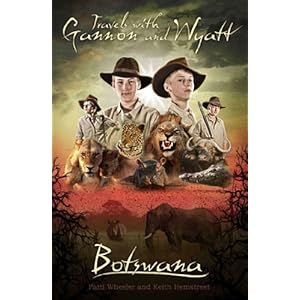Still reading through south central Africa, today we’re in the country of Malawi. Malawi is another country that borders Zambia, where a group from my church will be traveling this summer to work at Kazembe Orphanage. (If you are interested in participating in this mission trip by donating books to the Kazembe Orphanage, see this post at Semicolon for details.)
 The Boy Who Harnessed the Wind has been billed as a story of scientific and technological innovation, but it couldjust as well be advertised as a survival story. Much of the first half of the book tells how William and his family survived a horrendous famine in 2002 brought on partly by natural disaster (drought), but also exacerbated by government ineptitude and apathy. William is unable to attend school past the primary level, since his family can only afford one communal meal per day during the famine. School fees are out of the question.
The Boy Who Harnessed the Wind has been billed as a story of scientific and technological innovation, but it couldjust as well be advertised as a survival story. Much of the first half of the book tells how William and his family survived a horrendous famine in 2002 brought on partly by natural disaster (drought), but also exacerbated by government ineptitude and apathy. William is unable to attend school past the primary level, since his family can only afford one communal meal per day during the famine. School fees are out of the question.
By the time the famine is over, with William’s family still too poor to send him to school, William borrows a book from the local lending library. The book, Using Energy, tells about windmills, and William sets out to build a windmill for his family to generate electricity using old bicycles, scrap metal, and tractor parts. He calls his invention, “electric wind.”
The story of how William manages to study on his own and then scrounge and save to beg, borrow, and buy the things he needs for his windmill is inspiring but also somewhat sad. Why do I have so much when others have so little? It’s amazing that William Kamkwamba was able to overcome opposition, prejudice, and a lack of education to build something that improved the life of his family. I wonder what I would have been able to make of my life without all of the advantages that I have enjoyed as a citizen of one of the richest nations in the world.
I would suggest you read the book if you’re interested at all in this sort of story; however, you can also read more about Mr. Kamkwamba and his windmill at the following websites:
William Kamkwamba: The Boy Who Harnessed the Wind
Bryan Mealer’s website
Moving Windmills










